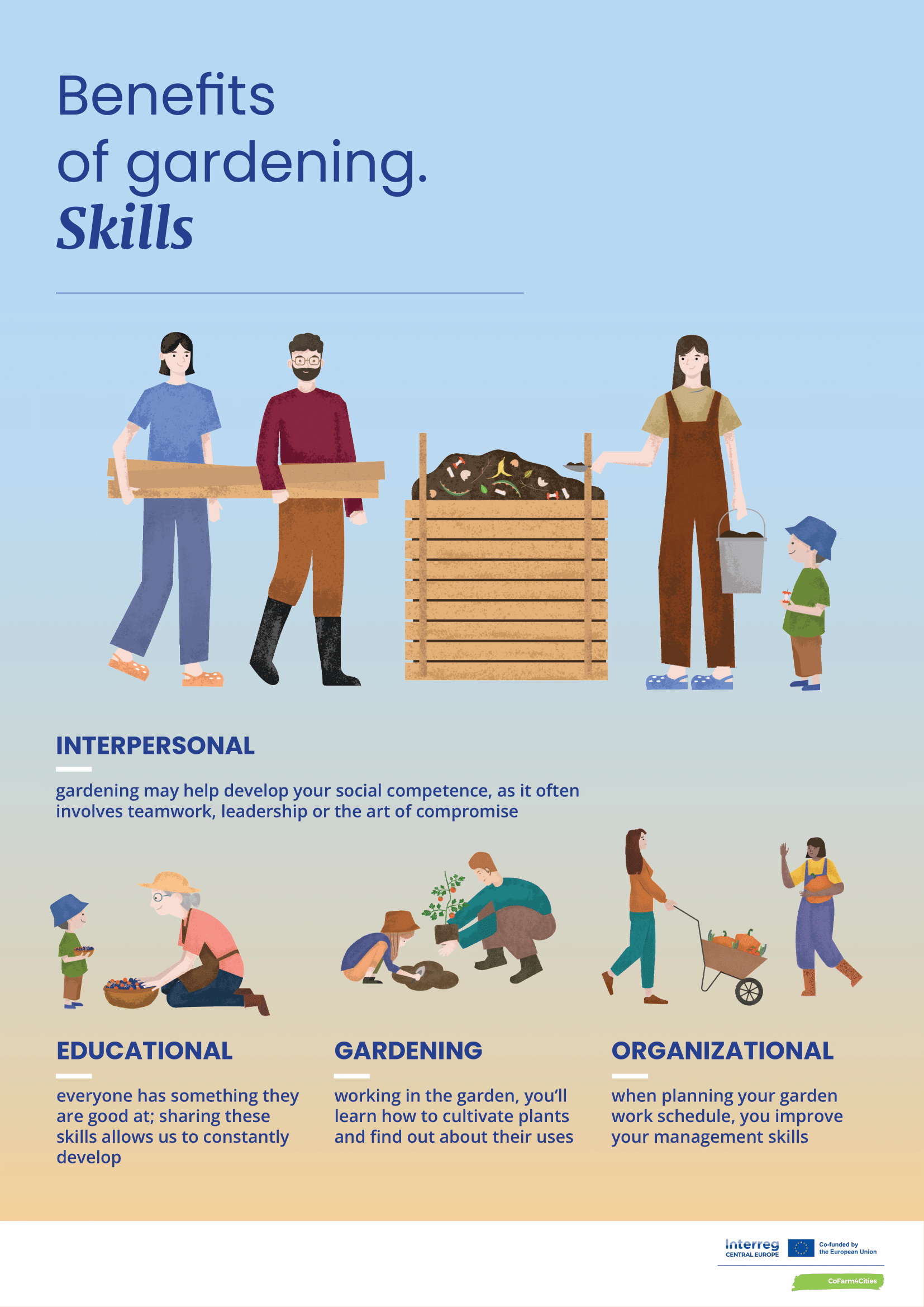Community gardening projects are more than just planting and caring for crops. They are spaces where people gain practical skills applicable in everyday life, as well as soft skills that increase their value as members of a community.
1. Interpersonal skills
Working in a group toward a shared goal—such as planning a schedule or dividing responsibilities—builds communication, collaboration, and conflict-resolution abilities. According to a study published in the International Journal of Environmental Research and Public Health, community gardens help participants build confidence in social interactions.
2. Educational skills
Gardens are excellent learning environments—not only about plants but also about ecology, sustainability, and healthy living. A report from the Food and Agriculture Organization (FAO) highlights that education in community and school gardens strengthens knowledge of sustainable agriculture and nutrition, which is especially important in urban areas.
3. Gardening and technical skills
Even beginners can quickly learn basic gardening techniques, such as soil preparation, composting, or space design. Participants also gain experience in using gardening tools and technology to support cultivation, such as drip irrigation or natural pest control methods.
4. Organizational skills
Every gardening project requires planning—from task delegation to resource management. Participants learn how to organize team work, manage time effectively, and plan long-term. As noted by Draper and Freedman (2010), the experience gained in community gardens helps participants improve project management skills in other areas of life.
5. Adaptive skills and problem-solving
Community gardens often face challenges: unpredictable weather, financial limitations, or plant diseases. Solving problems together builds adaptability, creative thinking, and decision-making under pressure. A study published in Urban Forestry & Urban Greening (2020) found that community garden participants feel more competent in dealing with unexpected difficulties.
6. Leadership skills
Many community garden participants take on leadership roles, organizing workshops, planning activities, or engaging the local community. These initiatives build leadership capacity and the ability to inspire others to act.
7. Ecological skills and pro-environmental thinking
Community gardens promote understanding of natural processes, such as plant life cycles and waste recycling. This fosters environmental awareness and encourages participants to implement eco-friendly practices in other areas of their lives.
Community gardening projects are true “talent incubators” that develop both technical and soft skills. Regardless of experience level, every participant can discover something that enriches their daily life—from plant knowledge to improved organizational abilities.
“Gardening in community spaces not only fosters skill development but also resilience and adaptability in response to environmental challenges.” – Zhang et al., Urban Forestry & Urban Greening, 2020.
“Community gardening builds leadership and organizational skills, empowering participants to take active roles in their communities.” – Holland, Local Environment, 2004.
“Educational gardening initiatives improve ecological literacy and promote sustainable living practices among participants.” – FAO Report, 2018.
